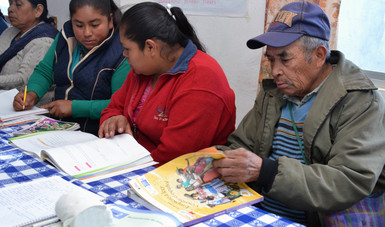“All the street signs looked to me as if they were in Chinese or another language, just like the newspaper or the water bill. Now my life changed, before I lived in the dark”.
I will never forget these words of a man, with tears of emotion, at the closing of a literacy course for adults, which we teach in one of the communities where AgroAmerica operates.
These words penetrated my mind, as we take it for granted that all people are literate or have the same opportunities for education. This moved me to think more about community education and educational programs that contribute to local development, aligned with the Sustainable Development Goals.
At that moment I also remembered the words of my father and founder of AgroAmerica: “My dream is to bring education to the communities.”
EDUCATION AND ITS EFFECT ON DEVELOPMENT
Studies have shown that the increase in education is decisive in people’s income levels, in community participation, in problem solving, in personal and family improvement, among other factors. In addition, the higher the level of schooling, the longer life expectancy, and the lower maternal and infant mortality. Consequently, education is key in reducing poverty.
UNESCO states that “Education is a basic human right that works to raise men and women out of poverty, level inequalities and ensure sustainable development.”
I believe that companies play an important role in reducing poverty, in partnership with governments and civil society. Regarding to Education, each country has its priorities and these needs must be evaluated in order to contribute, together with local actors, to finding a solution.
For example, in Guatemala, one of the countries where we operate, we could invest in literacy. It is not possible that in the 21st century we still have illiteracy rates of 19.48%.
Another issue that is the responsibility of companies is to train staff. This ensures levels of knowledge necessary to better perform their duties in the company, but also helps them in the social and family sphere, by imparting values and other types of life skills.
According to the ILO, investing in education and training for rural youth is essential to stimulate productive transformation and promote economic diversification in rural areas.
In this line, AgroAmerica joined efforts with the University of Colorado to implement a comprehensive development program for adolescents from 12 to 18 years of age to provide them with the opportunity to have comprehensive development, which allows them to excel in the personal and professional fields, and at the same time, become change’s agents in their families and communities.
My father’s dream did not remain in the inkwell and motivated us to give priority to the Community Education’s issue. Today, the main fruits of his vision have been seen. An example is the Center for Human Development in southwestern Guatemala, which benefits more than 30,000 people in the area and provides quality school education to the children of workers. Several students from the school have obtained, for many years, the first place in the National Reading Contest, organized by the Ministry of Education of Guatemala.
One of the axes of AgroAmerica’s sustainability program is Education for Development. We have designed and implemented programs for children, adolescents, teachers, women, pregnant mothers, community leaders and of course for our workers.
The alliance with the University of Colorado, government institutions, and civil society has been crucial in implementing high-impact educational programs.
I am pleased to share the following link, which contains the programs of AgroAmerica, with the aim of making the lessons learned available or to be able to replicate them.
